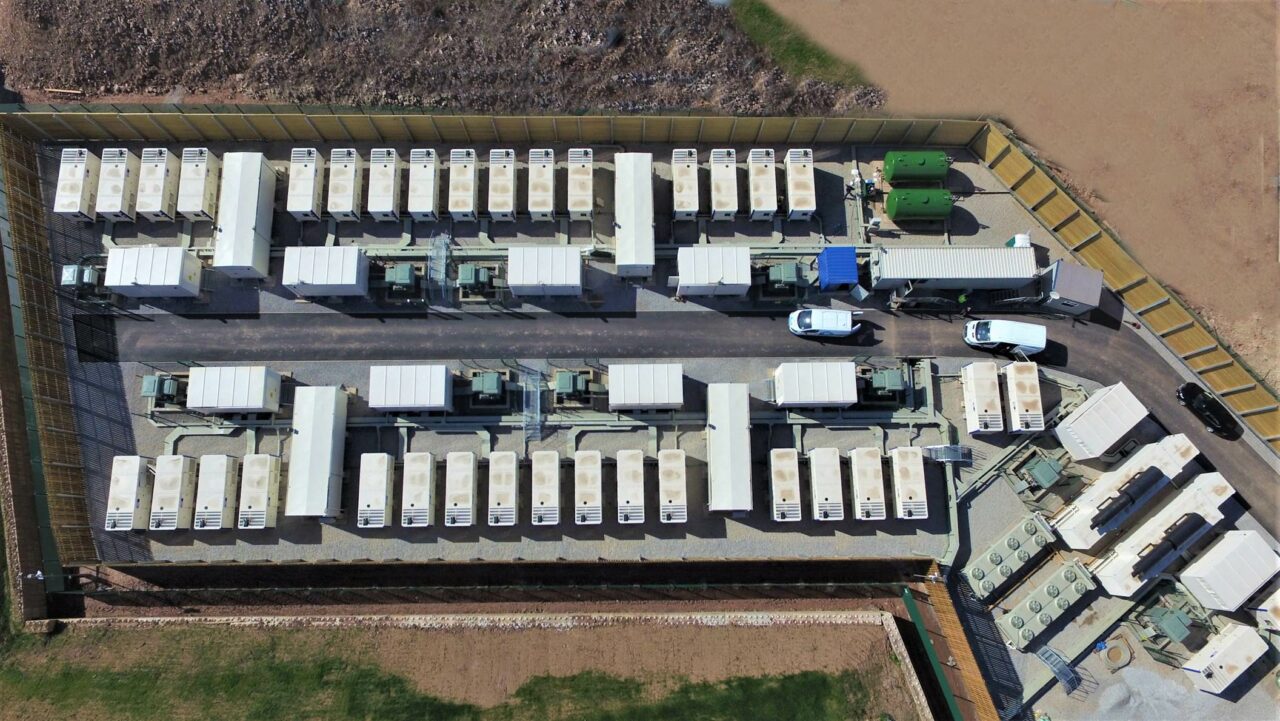
As reported last week in some detail by our UK-based sister site Current, this was 40% lower than prices at clearing in the previous year’s auction.
Battery energy storage system (BESS) assets got 8.58% of that total, with 655.16MW of bids successful, and pumped hydro energy storage (PHES) assets 2.43%, or 185.38MW.
While that was therefore dwarfed by the 38.53% of capacity won by gas-fired generation (around 3GW) and 2.76GW won by nuclear (36.22%), battery storage was the leader among renewables and non-thermal generation technologies.
“The biggest winners in this week’s auction were the large number of battery developers who will be able to supply power to the UK next year when the system is short,” Sam Hollister, head of energy economics and finance at energy transition research and consultancy group LCP Delta said after publication of results.
Coupled with this week’s T-4 auction, which will secure capacity four years out from delivery year, the overall cost of the two Capacity Market solicitations could be around £3 billion of taxpayers’ money, Hollister said.
With the T-1 costing about £273 million in contracts, the T-4 could cost about £2.6 billion, the economist said, with 44GW of generation targeted.
The T-4 auction is expected to clear today and the industry’s expectation is that prices will be much higher than at T-1. Hollister said T-4 prices could exceed last year’s £63/kW/yr, which was a record-breaking level at the time.
According to the LCP Delta analyst, EDF’s nuclear fleet was also a winner, getting lifetime extensions into 2025.
“These winners were boosted by an underestimate of demand as well as some planned assets coming on line date either being delayed or cancelled entirely,” Hollister said.
“For [the] T-4 auction, we will have to wait and see the outcome, but we anticipate an increasingly tight scenario as power stations retire and electricity demand increases.”
T-1 Capacity Market prices ‘slightly above expectations’
Battery storage developers Harmony Energy Income Trust and Gresham House Energy Storage Fund, both commented after results came out that prices for T-1 had been slightly above expectations. As noted by Current, it was 40% below 2023’s equivalent, which cleared at £60/kW.
Gresham House Energy Storage Fund said it secured 1-year contracts across 13 of its fleet of lithium-ion BESS assets, with a total derated capacity of 90.491MW, noting in an update to shareholders that the contracts would be worth £3.2 million in additional revenue between October 2024 and September 2025.
The net asset value (NAV) benefit of the contracts will be recognised at the company’s next valuation date, 31 March 2024.
“We’re pleased with these results from the latest annual Capacity Market auction, as well as their expected positive contribution to our NAV from 31 March 2024,” Gresham House fund manager Ben Guest said.
Guest added that the flexibility of battery storage assets is “one of the great attributes” of the technology, with Gresham House able to “swiftly and remotely configure” its software to tap into a “wide range of potential revenues,” both contracted or merchant, without requiring any changes or updates on the hardware side of the systems.
Harmony Energy Income Trust also said the clearing prices were higher than the company had expected. Six of its assets made successful bids and would contribute around £1.7 million to its contracted revenues for the delivery period.
The fund said that two assets in its portfolio, Broadditch and Farnham, did not compete in the T-1 auction because they already have T-4 CM contracts in place, with delivery from October this year, over a 15-year term. Projects cannot hold two CM contracts over the same or overlapping delivery periods.
Gore Street Capital, the third of the UK’s listed funds dedicated to energy storage assets, got contracts for five assets.
As has been widely reported, the UK’s otherwise booming energy storage market has experienced a period of relatively low revenues over the past winter, impacting the share price of all three listed funds.
At last week’s Energy Storage Summit EU, held in London, UK, the audience heard that the CM revenues, while only comprising a minor portion of the BESS revenue stack for successful bidders, are an important way to get fixed revenues over contracted periods.
Head of capacity market policy at the UK government Department of Energy Security and Net Zero (DESNZ) Georgina Morris said that according to “various commentators,” CM revenues are becoming a more important part of the battery storage revenue stack.
The fact that the CM offers a guaranteed payment is thought to be especially welcome in today’s high interest-rate environment, Morris said. The DESNZ representative quoted figures from industry analysis group Modo Energy, which found that average UK BESS revenues of £51,000/MW/yr go up to around £61,000 with Capacity Market revenues factored in.
Elsewhere in Europe, Italy and France have both held capacity market auctions with battery storage assets eligible to take part, while Germany is thought to be considering a launch. As reported by Energy-Storage.news yesterday, in the US, more than 1,800MW of battery projects won contracts in the most recent ISO New England auction, a massive leap from just 5MW that cleared five years ago.

